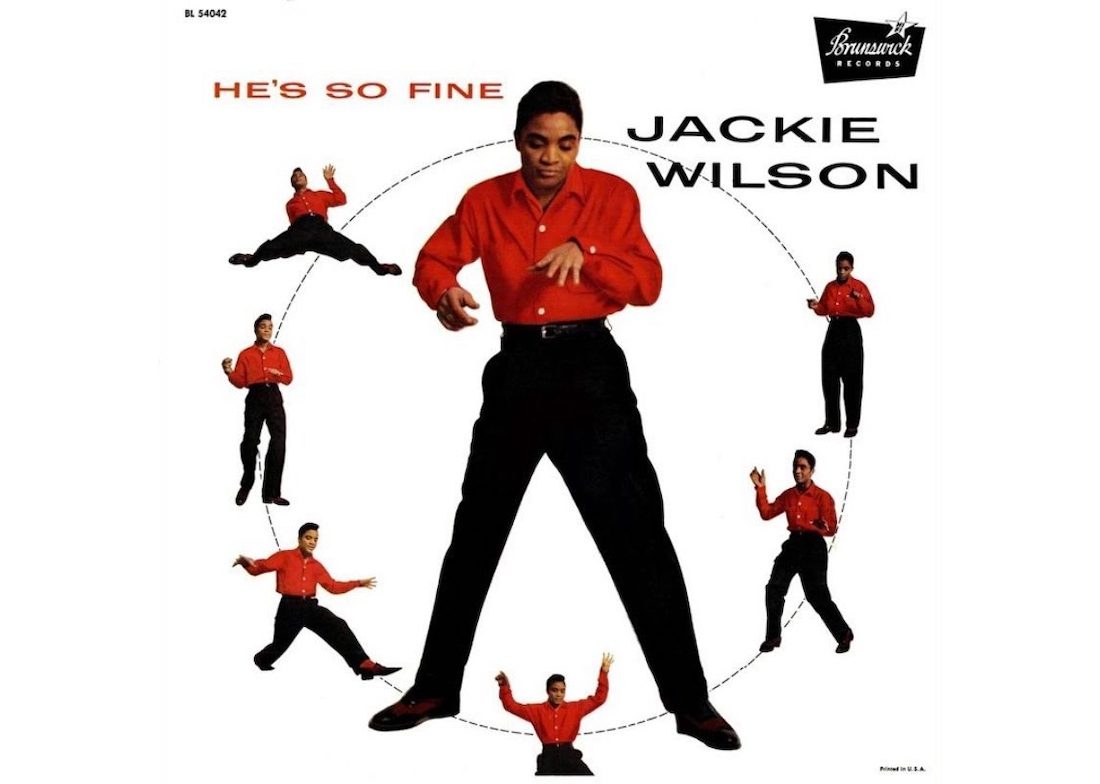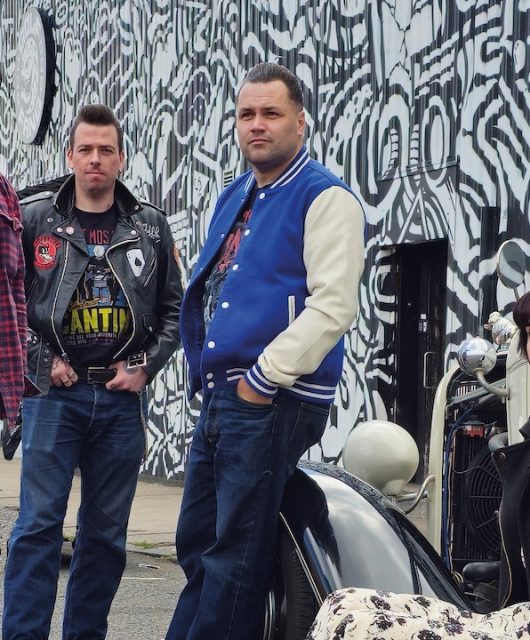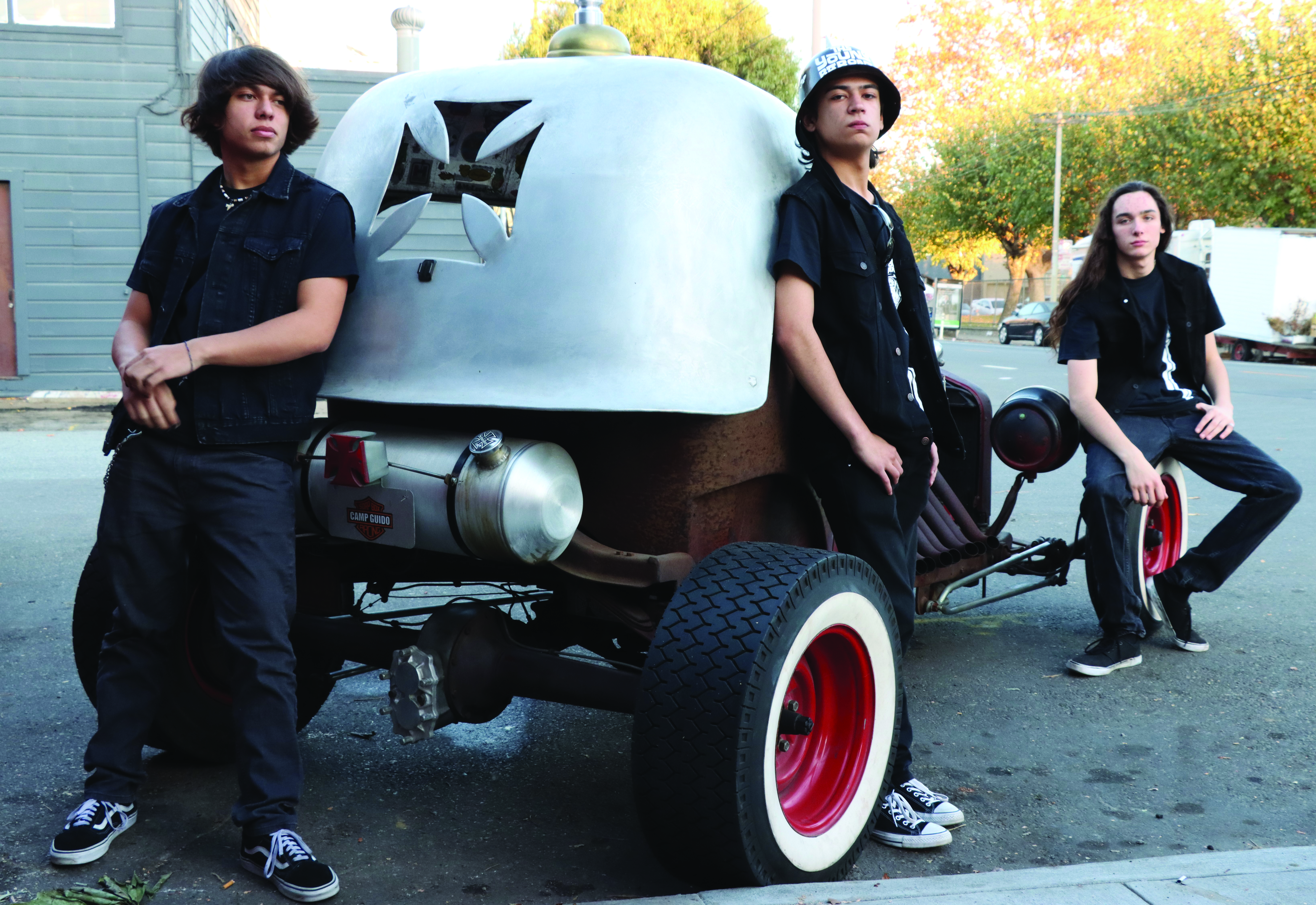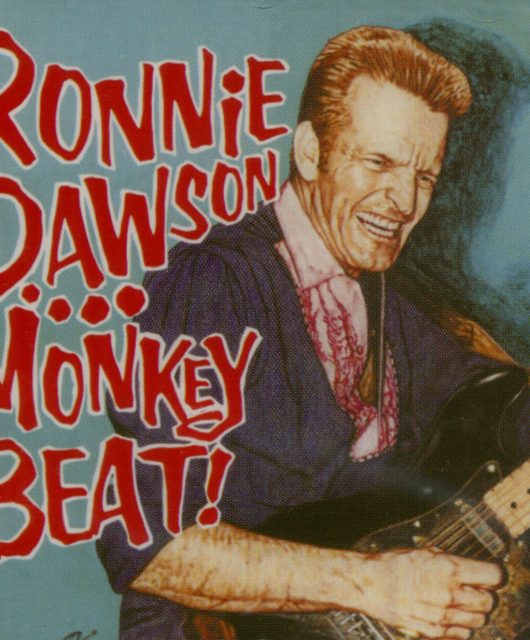When the much-loved Jackie Wilson died in January 1984, the music world lost one of its most soulful stars. In 2024, to mark the 40th anniversary of his passing, his son Bobby Brooks Wilson joined Vintage Rock to celebrate the life and career of the singer dubbed ‘Mr Excitement’.
With a back catalogue spanning R&B, rock’n’roll and soul, Jackie Wilson was a true livewire whose vocal virtuosity thrilled millions around the globe. With evocative hits such as Lonely Teardrops, That’s Why (I Love You So), (Your Love Keeps Lifting Me) Higher And Higher, I Get The Sweetest Feeling and the UK chart-topper Reet Petite (The Sweetest Girl In Town), the dynamic and debonair entertainer possessed a unique style that was often imitated but very rarely equalled.
Sadly, after suffering a heart attack while singing on stage in September 1975, the high-octane star never fully recovered and passed away at the age of 49 on 21 January 1984. Forty years on, Mr Excitement’s much-cherished memory is kept alive by his son Bobby Brooks Wilson, who pays tribute to Jackie on stages all over the world. But as Vintage Rock discovered, Bobby only found out who his biological father was after people kept telling him that he looked and sounded just like the rock’n’soul legend.
Bobby explains: “When the people who saw Jackie in his prime make comparisons between me and my father, it makes me feel good because I’m not just keeping his music alive, I’m also helping to keep his spirit alive, too.”
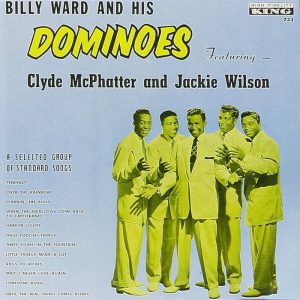
Soul Time
Born on 9 June 1934, Jackie Wilson was the third and only surviving child of Jack Leroy Wilson Senior and Eliza Mae Wilson. As a youngster growing up in Detroit, Michigan, he joined a local gang called The Shakers and was something of a mischief-maker, a pastime which would result in a number of visits to juvie. However, after discovering the thrills of performing in public alongside his mother in church, the singing sensation was soon set on a path to superstardom.
“Aretha Franklin once told me that my grandmother was a great gospel singer,” reveals Bobby. “Jackie learned his vocal antics from his mother and people say my dad sounded like her. I never got to meet her because she died two weeks after my father had the heart attack that left him in a coma back in 1975.
“He started performing doo-wop on the street corners of Detroit at the age of nine,” Bobby continues. “I know, from talking with some of my kinfolk in Mississippi, that he loved the music of Mario Lanza, Al Jolson, Louis Jordan, and Al Hibbler. They were the artists who he imitated when he started out as a singer. When you see him get down on one knee he is borrowing that move from Al Jolson. Of course, he put his own style in there, but it was all those great singers that helped make Jackie the legend he was. Once he got started, Jackie would go on to influence everybody else.”
Going Solo
Wilson started out as a solo singer cutting his chops in local clubs before forming the Falcons with his cousin Levi Stubbs who later led the Four Tops. He went on to join the Thrillers after being spotted by Johnny Otis at a talent show in 1951 and landed his big break in 1953 when he was chosen to replace Clyde McPhatter in Billy Ward And His Dominoes.
Bobby explains: “Billy set my dad up to have a couple of lead songs with the Dominoes and one of those tracks was St. Therese Of The Roses. This really helped set Jackie apart from many of the other vocalists singing doo-wop and R&B at the time.
“A year or so later, Roquel ‘Billy’ Davis, who was in an early version of the Four Tops and close to Jackie, was working for Brunswick Records with Al Green [not the legendary soul singer]. Al wanted to sign Jackie as a solo artist but unfortunately suffered a heart attack and died, so his business partner, Nat Tarnopol, took over as Jackie’s manager. It was at this point that they started to chalk up a slew of hits like Reet Petite, To Be Loved, That’s Why (I Love You So), I’ll Be Satisfied and Lonely Teardrops. These successful singles, written by Berry Gordy with his sister Gwen and Billy Davis [under the pseudonym Tyran Carlo], set Jackie on his way to becoming a superstar.”
By Special Request
After bursting onto the scene as a solo singer with the 1957 debut single Reet Petite (The Finest Girl You Ever Want To Meet), as it was originally subtitled, Wilson’s reputation as an electric performer quickly developed. When his 1958 signature song Lonely Teardrops broke the Billboard Hot 100 Top 10, the precocious talent became one of the hottest acts around.
“He was one of a kind with an angelic voice,” offers Bobby. “He had the pipes and if you listen to his My Yiddishe Momme, it will blow you away because his enunciation was out of this world. The man could sound like anybody. Sonny Turner, of the Platters, told me: ‘Your dad could sing in both Italian and Spanish. His dialect and intonation were spot on, you really couldn’t tell that he was a Black man from Detroit when he sang in those languages’.
“But on top of all that, he had such incredible energy. The way that he displayed himself, made his show something you would remember. I can’t tell you the countless people I’ve ran into that are still excited about what they saw Jackie do in 1965 or ’67. He always looked really sharp and classy with his hair, makeup, nails, and suits… He seemed to lock all the people in and they loved him.
“They called him the ‘Entertainer’s Entertainer’, and he could really get people going. He was such an exciting performer it made other acts want to watch him.”
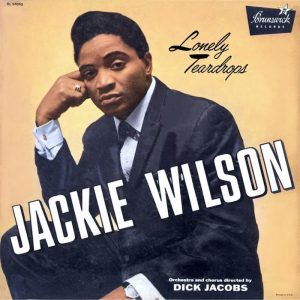
Sensational Showman
Wilson’s supreme style, sensational showmanship, and sublime voice would go on to inspire generations of Black artists such as James Brown, Prince and Michael Jackson. However, there was one white hillbilly hepcat from Tupelo, Mississippi, who was left suitably spellbound by the soul star’s hot take on rock’n’roll… despite not even knowing who he was.
“I heard this guy in Las Vegas, Billy Ward And His Dominoes,” Elvis Presley informs Carl Perkins, Jerry Lee Lewis, and Johnny Cash on the 1956 Million Dollar Session recording. “There’s a guy out there who’s doin’ a take-off of me, Don’t Be Cruel, and he tried so hard until he got much better… Much better than that record of mine.”
The King would adopt many of Wilson’s mesmerising moves and an unbreakable bond developed between the two stars, as Bobby recounts: “When the two of them got together they were like brothers. Elvis called him the ‘Black Elvis’ and he called Elvis the ‘white Jackie Wilson’. It was while Elvis was shooting movies in the 60s that he and my father became really close. My dad was invited on to the set for the filming of Girls, Girls, Girls and he is actually in the audience of the club where Elvis mimics Jackie’s mannerisms while singing Return To Sender.
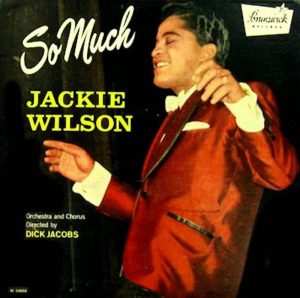
The Man Who Would Be King
“There’s a famous story of when my dad performed at The Trip nightclub in Hollywood and Elvis wanted to see him play. Jackie got so nervous because the biggest star in the world was coming to see him, but Elvis was also giddy because he felt like it was him that was going to see the biggest star in the world!
“Jackie once said in an interview that if he wasn’t a pop singer he would like to be a disc jockey. When asked if he could play one artist for one hour on the radio who would it be, and without hesitation he answered Elvis.
“My dad loved him because he got to see his heart and they had such high respect for each other. When my father was appearing at the Flamingo in Vegas and Elvis was at the International, they stayed up all night singing gospel together. Elvis was taught gospel as a kid and was raised around Black people. He went to the churches and sang gospel songs. He didn’t do Black music because he was trying to be Black, he did it because the music was in him.
“Elvis was hated by white America in the beginning because they said he was singing coloured music and he sounded like a coloured man. Baptist ministers were doing everything they could to keep his music off the radio, but it didn’t last because the fans wanted to hear it. If it wasn’t for Elvis, white America would not have listened to Black music. Jackie believed that Elvis really helped Black people out and that he opened the door for them because they weren’t being listened to before.”
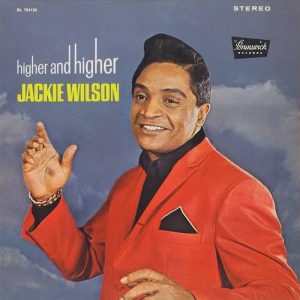
Higher & Higher
While the pioneering music of Black artists such as Fats Domino, Chuck Berry, Little Richard, and Jackie Wilson would help break down racial divides through the radio, deep-rooted segregation would continue to exist across the United States.
“It was just a very stressful situation to be in, especially in the South, because of the racial tension about at that time,” Bobby adds. “Black artists like Jackie couldn’t stay in hotels or eat at restaurants and they had to sleep in people’s homes or have fans feed them. They couldn’t travel regular roads without being harassed by the police. Artists of today don’t appreciate how hard it was for the artists of yesterday. They were treated like third class citizens, but he still went on stage and smiled and sang. It’s absolutely mind-boggling how they kept doing it.
“Otis Williams of The Temptations remembered how, when they opened for Jackie, there would be a rope down the middle of the room with whites on one side and Blacks on the other. He told me how, as soon as my dad started singing, ‘that rope went invisible and you couldn’t see it’. People started dancing with each other and police couldn’t do nothing about it even though they’d be there to supervise. He broke those barriers every time he opened his mouth. Jackie was adored and, regardless of how negative the situation was, he never let it discourage him. He never stopped a performance and was always able to put on a show. I consider Jackie Wilson to be a Superman.”
Sweetest Feeling
With the dawn of the 1960s, Wilson continued to register US hits. (You Were Made For) All My Love, Alone At Last, My Empty Arms, Please Tell Me Why and A Woman, A Lover, A Friend all reached the upper echelons of Billboard. While Mr Excitement experienced something of a dip in chart success as the decade progressed, he still delivered two of the most spellbinding singles of the era with (Your Love Keeps Lifting Me) Higher And Higher and I Get The Sweetest Feeling.
In September 1975, Wilson was one of the featured acts in Dick Clark’s Good Ol’ Rock & Roll Revue. While singing Lonely Teardrops he suffered a heart attack on stage which caused him to slip into a coma. Sadly, he was unable to recover fully and eventually died in January 1984.
“The memory Jackie left is his great music, his great performances, and his humanity towards other people. That’s what I see and hear every day. It really is an honour to keep my dad’s music going and to remind people of the entertainer that he was.
“Sadly, everything I know about my father has come through meeting his friends, fans, and the people he worked with as I never got to meet him.”
Today, Bobby Wilson is a singer who has gained critical acclaim for his stage recreation of Jackie Wilson. While his vocation in life might have seemed written in the stars, Bobby’s remarkable journey is one that truly beggars belief.
Somethin’ Else!!
Bobby wound up in the foster care system of South Carolina as an infant when his birth mother gave him up for adoption. Christened Brooks by the state, Bobby was a sickly child and suffered numerous childhood ailments including rickets and bronchitis.
“I was in and out of the hospital until I was 12 years old,” Bobby explains. “The doctors kept saying I wasn’t going to make it, but my foster mother, Annie Belle Davis, is the strongest woman I ever met and she prayed for me throughout those early trials and tribulations. I had a great childhood and the music my sister would play on her stereo helped sooth me.
“My mom would host these ‘Friday Night Fish Fries’ when I was around four or five. She would put all the kids in the basement while the adults would cuss ’n’ fuss, play cards, and listen to great music by the likes of Luther Ingram, Billy Paul, Four Tops, The Temptations, and Miracles. They would all be screaming and carrying on.
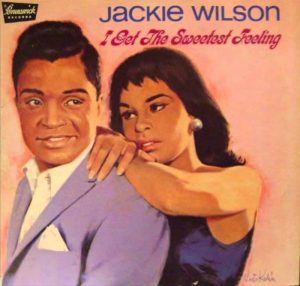
Little Entertainer
“Apparently I was a little entertainer, because I was always singing and dancing, and my mom would put her finger in my face and say, ‘Tonight’s my show not yours, don’t come out of that basement’. But I remember sneaking up the stairs to watch the grown-ups having a good time. The music was so appealing and I would watch them until I fell asleep.
“When I was growing up I’d hear Jackie Wilson’s music, but this was a long time before I found out who Jackie Wilson was. I vividly remember getting ready for school, when I was in early elementary, and the radio would broadcast the same songs every morning. Every day, at the same time, about 7am, I’d be getting dressed and they’d play Higher And Higher. I also listened to Motown, blues, jazz, and entertainers like Otis Redding, Joe Tex, Bobby Blue Bland and Sam Cooke.
“When I hit 14 or 15 I was free of all my ailments and able to play sports. I did a little bit of singing in the high school choir, because I was always drawn to music. I decided to join the military and planned to do 30 years’ service with the Navy. However, medical problems started coming back at me again and I wound up with a medical discharge… that led me to Jackie Wilson. If I had stayed in the Navy for 30 years, I probably would never have entered into the music industry.

Like Father, Like Son
“Shortly after leaving the Navy, I was singing in a karaoke bar in Hawaii when Bruno Mars’ father, Peter Hernandez, spotted me. He invited me to audition for his group The Love Notes. Bruno was about six years old at the time and had been performing his ‘Little Elvis’ impersonation for a couple of years.
“Paul Revere, of Paul Revere & The Raiders, had come to see Bruno in Hawaii. As soon as he saw me he said, ‘Hey you know you look just like Jackie Wilson, we’re opening the Legends In Concert show and I want you to do a tribute for me’. Now, I didn’t really know anything about Jackie Wilson or what he looked like, but I knew I must resemble him a little bit because people kept telling me so all the time. I was unable to track down any video footage to watch him in action, but Paul told me, ‘If you can just be you, you’ll be Jackie Wilson’.
“I joined the rest of the company in Atlantic City and one evening the Four Tops checked out my show. We’d do two shows a day at Bally’s and they would keep coming to see me every day and every night. They asked the director if they could meet me because I never turned off my ‘Jackie Wilson’. When I met with them, Lawrence Payton kept saying to me, ‘You’ve got to be family, because you can’t learn Jackie the way you are’. I’ll never forget the first words Levi Stubbs said to me: ‘You’ve got to get up early in the morning to be closer to my cousin than you, how do you do it?’
To Be Loved
“One time, when I was doing a show for Legends In Concert, there was a guy who kept picking on me. He was pushin’ and pushin’ until I finally reacted and grabbed him. When I walked away from the situation, Nate Evans, who was at the show performing with The Temptations, said: ‘That’s exactly how your dad would’ve reacted. When people tested him for being a pretty boy, he would smile and snap… Boy, would they be sorry that they ever messed with him. You cannot tell me you ain’t Jackie’s kid!’
“Anyway, there was a lot of back and forth until we finally figured out who my birth mother was. She was a woman called Willie Mae Benton and she knew Jackie. He would take her to parties and everybody knew her. I met family members and eventually took a DNA test, which confirmed that Jackie Wilson was my actual father.
“The process probably took seven years. I met my birth mother on a couple of occasions before she passed away, but we never became close. My foster mother is my mother.”
The Last Teardrop
Released towards the end of 2023, The Last Teardrop is a brand new documentary film that examines Bobby’s incredible story while highlighting the challenges faced by children in the foster care system. Featuring rare archival footage of Jackie Wilson and exclusive interviews, the new film is a celebration of human resilience and proof that life is indeed stranger than fiction.
“My father is the hook for the story because he is such a famous guy and the filmmakers salute Jackie for a good portion of the movie,” reveals Bobby. “However, they also focus on the foster care system. Research shows that a lot of the kids that come out of foster homes either end up in jail or on the streets. I’m considered a success story… who just happens to have a famous dad.
“At a recent screening I had this one guy suggest to me that I was lucky because I had this rich father and none of the other kids in the system have that. I had to point out to him that my life didn’t change because Jackie Wilson was my dad. No money or accolades came to me, I was already an entertainer and a functioning adult before that. Everything I’ve done has been on my own, before I knew who my father was. I wanted to tell my foster care story and celebrate how the state of South Carolina really took care of me. I wanted to give something back and hope it will be an inspiration for other foster care kids.”
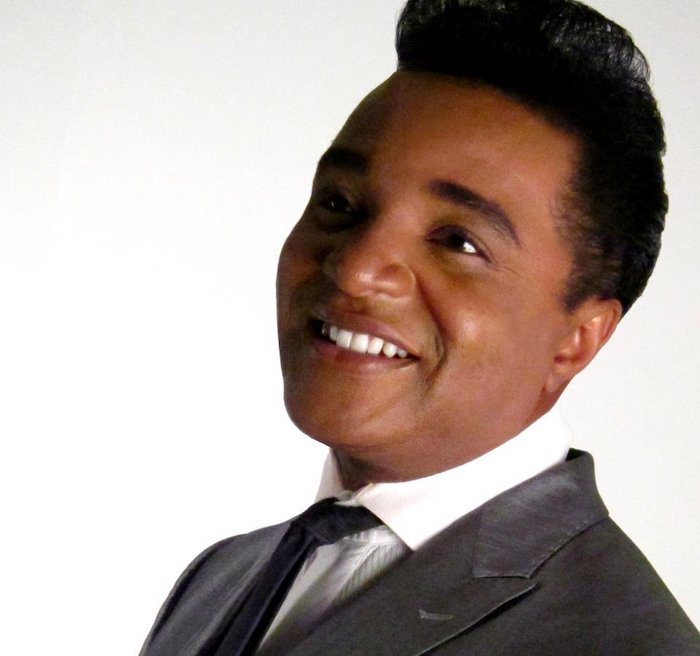
Nobody But You
“I feel like Jackie is always protecting me”, adds Bobby. “Just before one of my first concerts in the UK, I felt somebody tapping my shoulder. When I turned around nobody was there. I went out on to the stage, tore up the floor, and afterwards a man who had been in the audience came up to me and told me he was a psychic medium. He said that it was my father who’d tapped me on the shoulder before the show and that he was proud of me and always there alongside me when I played. That truly spooked me out, but it also gave me comfort and made me feel good.
“Because I do his music so much, some people swear that I summon him or he jumps into me when I start singing.”
Given that he has such a rich repertoire of numbers to draw from, Vintage Rock wonders if Bobby has a favourite Jackie Wilson song?
“I have to say Nobody But You, because I feel like he’s singing to me when I hear it,” Bobby answers. “I love playing all his music, especially his operatic numbers like Alone At Last, My Empty Arms, Night and To Be Loved, because it’s easier for me. His voice could go from baritone to upper first tenor and move into falsetto effortlessly. I simply can’t move like that vocally.
Living legacy
“Brenda Lee recently asked me to join her on stage to sing Higher And Higher. She stood beside me and provided back-up and said, ‘This young man is phenomenal just like his dad’. I often take my show to the UK where I play the rockabilly and Northern Soul festivals. Jackie’s music is always a highlight at those events.
“I’m proud to be able to do this and share his music. The fact that I can just give fans 10 per cent of what he was and people go away happy is good enough for me. I’m not Jackie Wilson in any way, but it’s still an honour to carry such a great legacy and keep it going.”
For more information about Bobby Wilson and his latest tour dates, click here
Did you enjoy this article? Why not check out When Rockabilly Shook The World
Subscribe To Vintage Rock Magazine Here

